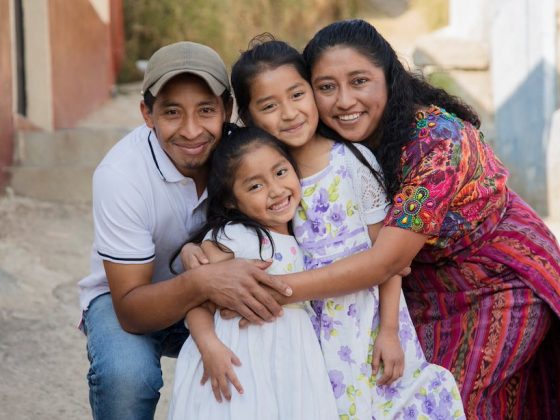All patients with metastatic breast cancer should have equal access to the best treatments and outcomes regardless of where they live in Europe. The EBCC14 manifesto, agreed at the 14th European Breast Cancer Conference (EBCC) on March 22 in Milan, considered recommendations to address metastatic breast cancer issues around stigma, registries and real-world data, multidisciplinary care, clinical research, quality indicators, and returning to the workplace.
“There are disparities not only across Europe but within countries regarding access to multidisciplinary quality care, information, and innovative new treatments. In order to bridge the gap between patients who get the best care and those who do not we have been working on this manifesto for the implementation of effective health policies for patients with metastatic breast cancer,” said Fiorita Poulakaki, co-chair of the session, from the Athens Medical Centre, Greece.
All too often, women with metastatic breast cancer can feel that they have been abandoned and are not getting the attention they deserve, Michail Ignatiadis, chair of the EBCC meeting from Institut Jules Bordet, Hôpital Universitaire de Bruxelles, Brussels, tells Cancerworld. “This needs to change. Due to recent advances in medicine many of these women will live for years. They have the right to get the best in terms of diagnosis, management, and being able to live a normal life, regardless of whether their life expectancy is short, medium, or long,” he says.
At each biennial EBCC Meeting, the EBCC Manifesto identifies topics that need to be addressed, taking into account differences across European countries. The seven recommendations presented in the ‘Addressing disparities in access to innovation for patients with metastatic breast cancer across Europe’ manifesto were devised by the EBCC Scientific Committee, with the final text taking into consideration audience comments from the session. “EBCC” is a unique meeting in the sense that it is the only multidisciplinary meeting in Europe for breast cancer where medical oncologists, surgeons, radiotherapists, pathologists, translational researchers, policy makers, patients and patient advocates all come together to discuss current data in the treatment of breast cancer,” explains Ignatiadis. “We believe that the best care is given to patients by taking a multidisciplinary approach.”
The manifesto is aligned with other initiatives aiming to change the collective mentality towards metastatic breast cancer, including the ABC Global Alliance and the Lancet Breast Cancer Commission. The plan is for the final article to be submitted to the European Journal of Cancer for peer review.
The seven recommendations outlined in the manifesto were:
1. Increase the visibility of metastatic breast cancer to society and facilitate involvement of people with metastatic breast cancer in trials, the workplace, and everyday life as much as they want and are able.
Fiorita Poulakaki made the case for policy makers to acknowledge that people living with metastatic breast cancer should have the same opportunities and rights as the rest of the population. “People with metastatic breast cancer are undercounted, undervalued, and underrepresented. We want these people to be counted and seen and treated properly,” she said. “We must make sure they continue their important contribution to society, family, arts and science.” Important issues needing to be addressed, she added, include introduction of laws to protect people’s right to work and receive the best possible care regardless of prognosis, in order to enhance survival outcomes and quality of life.
2. Implement a National Cancer Registry in every European country that records stage at diagnosis and relapse, and share the data with the International Agency for Research on Cancer (IARC), to understand how many people are living with metastatic breast cancer.
Not all countries have a registry for early breast cancer let alone metastatic breast cancer, said Frederieke Van Duijnhoven (Netherlands Cancer Institute, Amsterdam). “If we want to solve the problem, we have to know everything we can about its size and characteristics,” she explained, adding that national registries need to be aligned with international data. The next hurdle, she said, was getting data across borders. “We implore policy makers to somehow waive the data policy for this type of data so that we can ensure reliable data throughout Europe that we can use to compare, identify and solve the problem of metastatic breast cancer health care.”
3. Harmonise, monitor, and use routinely collected real-world and registry data (including but not limited to details of biomarker/ genetic testing, treatment, and quality of life) to support reimbursement policies and improve access to treatment, trials and services and to evaluate outcomes.
Valesca Retel (Netherlands Cancer Institute) defined real-world data as: clinical data including information on reimbursement, patient reported outcome measures, quality of life and genetic testing. Genetic testing information, she added, was especially important for patients with metastatic breast cancer to access targeted treatments.
An audience comment underlined the need to adopt a more ‘holistic approach’, by providing real-world information not just on diagnosis and treatment, but also quality of life and psychological effects.
4. Ensure all patients with metastatic breast cancer in Europe have access to high-quality multidisciplinary information and care (imaging, molecular biology, pathology, radiation, systemic therapy, surgery, side-effect management, palliative care, trials, etc).
Icro Meattini (University of Florence) said that, for optimal treatment, patients need to have optimal access to high-quality multidisciplinary information and care.
5. Design a mechanism to fund Europe-wide pragmatic optimisation trials to address questions of public interest.
Etienne Brain (Institut Curie Saint-Cloud, France) said that there is high discrepancy between the endpoints that are important to patients and treating physicians compared to those used by trialists. “One of the most important aspects of these pragmatic questions is how we select better what is essential to collect,” he said.
Gabe Sonke (Netherlands Cancer Institute) commented that, while trials exploring drug optimisation are not usually supported by industry, it should be possible for academic institutions to fund them. “By giving less intensive treatments we give less expensive treatments. We have to design mechanisms to get the savings into the trial system,” he said. Other comments covered the need to create specific pathways allowing patient organisations to participate in proposing the questions.
6. Ensure implementation of newly established quality indicators across Europe
Orit Kaidar-Person (Sheba Medical Center, Ramat Gan, Israel) said that the ABC Global Alliance now provides quality indicators for metastatic breast cancer. “These can help us evaluate how we are doing in clinic, and how we improve if we implement the registries and real-world data. We can make sure that we are giving our patients the best of care.”
A proposal was made that achieving quality indicators should be linked to funding and accreditation of metastatic breast units.
7. Consider developing and introducing a tool to rate the importance of interventions beyond anticancer drugs (similar to the ESMO Magnitude of Clinical Benefit Scale for drugs).
Michail Ignatiadis argued that the ESMO Magnitude of Clinical Benefit Scale offers a great tool to help stakeholders make important decisions. “But drugs are not the end of the story. We need to create this kind of scale for the whole patient journey, including screening, diagnosis, treatment, and supportive care.”












